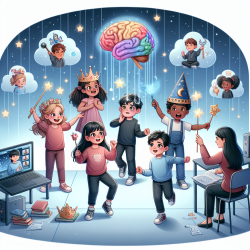Introduction
In the realm of education, the concept of "subtractive schooling" presents a critical challenge that educators and therapists must address to foster inclusive and effective learning environments. The research article titled The pernicious whiteness of coloniality in elementary science classrooms: the multigenerationality of subtractive schooling in El Sur de Tejas, Aztlán by Luna and Jupp (2023) provides an insightful exploration into this issue. This blog post aims to help practitioners, particularly those involved in online therapy services, understand and implement the findings of this research to improve educational outcomes for children.
Understanding Subtractive Schooling
Subtractive schooling refers to educational practices that systematically strip away students' cultural and linguistic resources, often in favor of dominant cultural norms. This phenomenon is particularly prevalent in regions like El Sur de Tejas, Aztlán, where the educational system's focus on English language proficiency and standardized testing perpetuates the whiteness of coloniality.
The research by Luna and Jupp (2023) highlights how Mexican-American teachers, despite their cultural backgrounds, often unconsciously perpetuate these subtractive practices. This occurs through the enforcement of English as the primary language of instruction and the decontextualized teaching of science, which neglects students' cultural and linguistic heritage.
Implications for Online Therapy Practitioners
As online therapy practitioners, it is crucial to recognize the impact of subtractive schooling on students' learning and development. By integrating culturally responsive practices into therapy sessions, practitioners can help mitigate the effects of subtractive schooling and support students in maintaining their cultural identities.
- Embrace Multilingualism: Encourage students to express themselves in their native languages during therapy sessions. This approach not only validates their cultural identity but also enhances their cognitive and linguistic development.
- Incorporate Cultural Contexts: Tailor therapy activities to include cultural references and contexts that resonate with the students' backgrounds. This helps students see the relevance of their cultural heritage in their learning journey.
- Promote Critical Thinking: Encourage students to question and critically analyze the content they are learning. This empowers them to challenge dominant narratives and develop a more nuanced understanding of their cultural and linguistic identities.
Encouraging Further Research
The findings of Luna and Jupp's study underscore the need for ongoing research into the effects of subtractive schooling and the whiteness of coloniality in education. Practitioners are encouraged to engage with this research, reflect on their practices, and contribute to the development of more inclusive and equitable educational strategies.
To read the original research paper, please follow this link: The pernicious whiteness of coloniality in elementary science classrooms: the multigenerationality of subtractive schooling in El Sur de Tejas, Aztlán.










